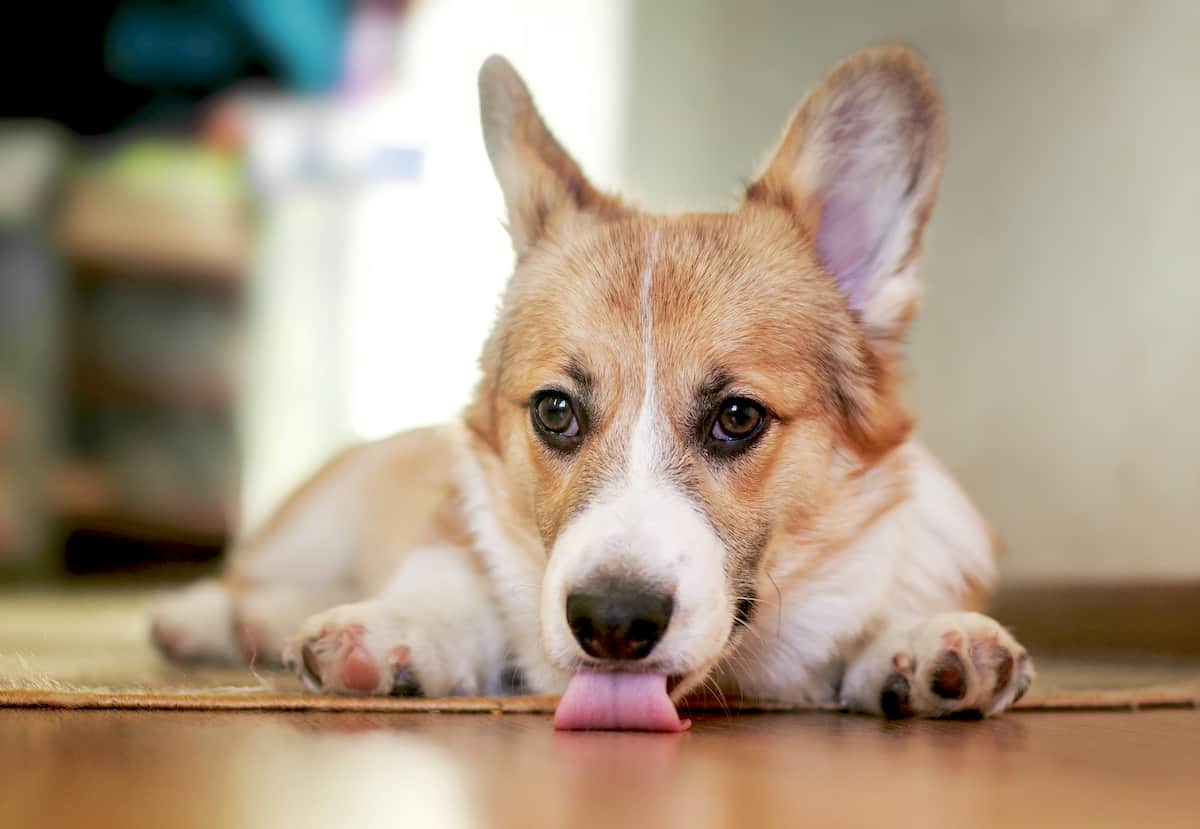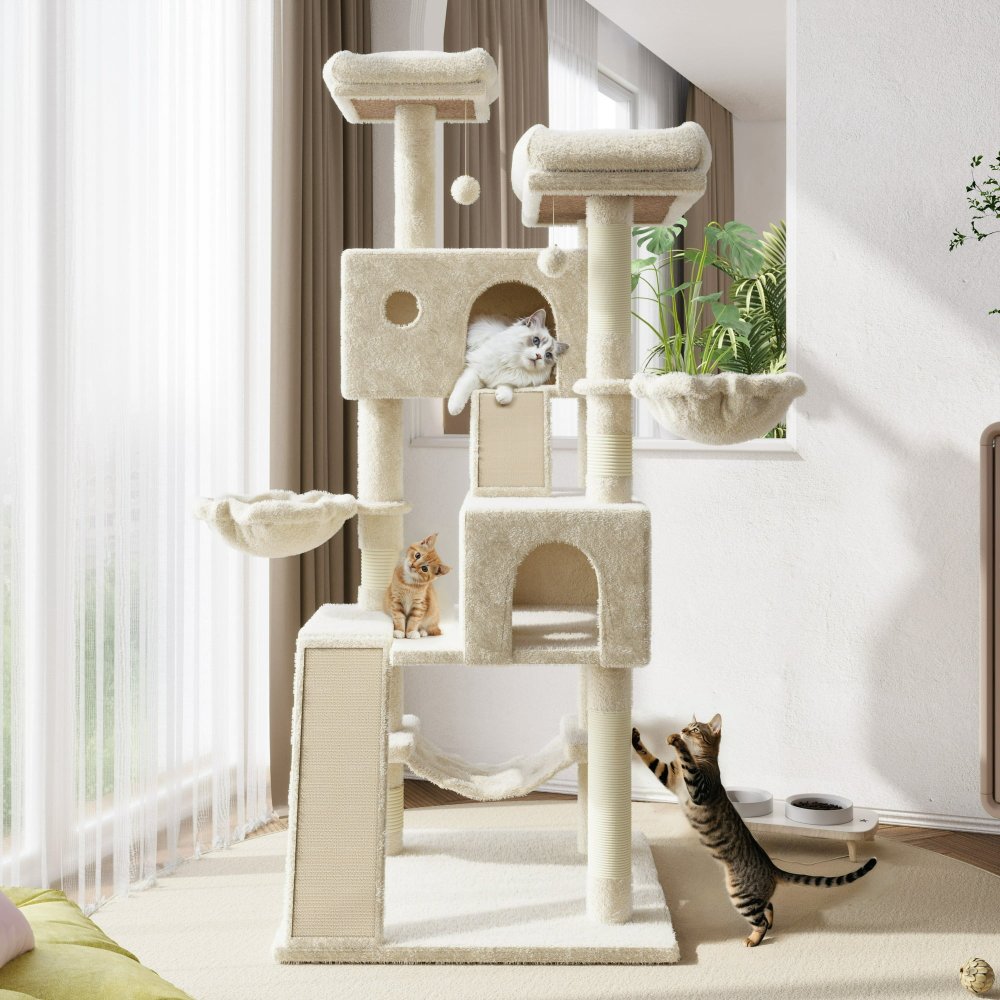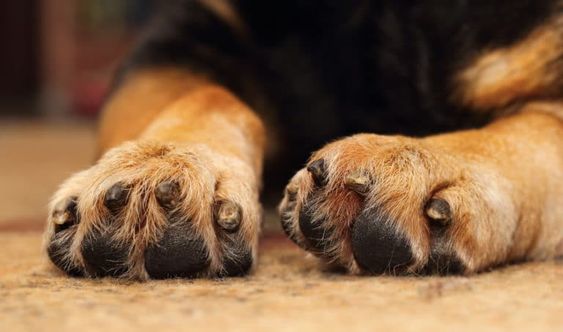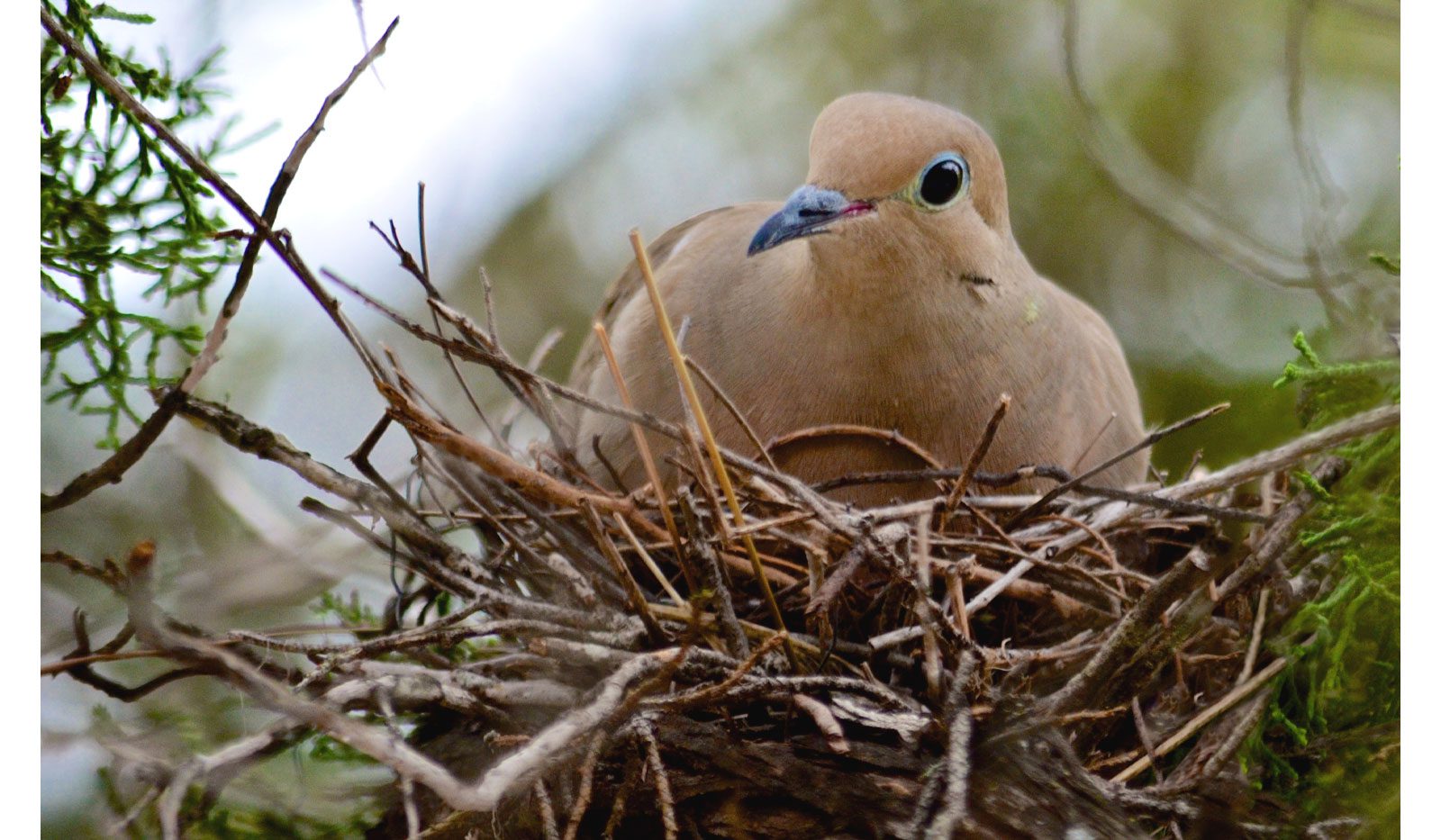Do you notice your dog uncontrollably licking the floor for long periods? Excessive floor licking can cause nausea and vomiting. Determining what drives this obsessive behavior is key to stopping it and giving your dog relief.
What Causes Dogs to Lick Floors Excessively?
There are a few possible explanations for nonstop floor licking and vomiting:
- Nausea – Motion sickness, eating something disagreeable, digestive issues, or other illnesses can cause nausea and floor licking. The motion seems to soothe their discomfort.
- Nutrient deficiency – Dogs lacking key nutrients like iron or B vitamins may lick floors and dirt in search of minerals. This can cause vomiting too.
- Stress or anxiety – High stress, separation anxiety, obsessive compulsive disorder, and other issues causing nervousness lead to excessive, soothing licking.
- Blockage or foreign object – Swallowed items blocking intestines or stomach can cause persistent licking and vomiting.
Determining the root cause with your vet helps tailor treatment to stop discomfort and excessive licking.
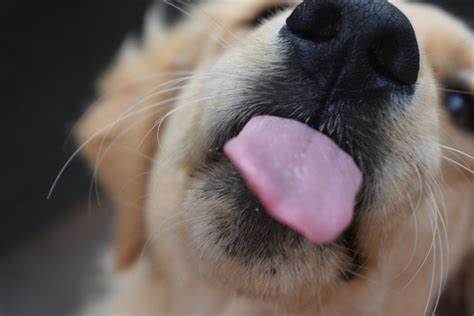
What to Do If Your Dog Won’t Stop Licking the Floor and Throwing Up
If your dog shows signs of obsessive floor licking and vomiting, try these tips:
- Withhold food for 6-12 hours to let their stomach rest and observe if licking persists on an empty stomach.
- Wipe cleaned floors with vinegar and deter uninvited licking by covering favorite spots. Distract with chew toys.
- Keep your dog well-hydrated with small, frequent sips of water to recover lost fluids from vomiting.
- Collect video evidence of the behavior patterns for your veterinarian. Note associations or triggers.
- Consult your vet about anti-nausea medications, antibiotics, deworming, or diagnostics like bloodwork or imaging to uncover underlying issues causing the vomiting.
Getting to the root cause of compulsive floor licking and vomiting requires veterinary attention to ensure serious issues get treated promptly. Temporary vomiting often resolves, but ongoing nausea signifies disease needing diagnosis.
What Makes Dogs Lick Floors So Much?
Certain traits attract dogs to lick floors excessively:
Smells and residues – From food particles to dirt to cleaning product remnants, scents draw in dogs. Licking floors can become an obsessive habit.
Texture sensations – Smooth floors or grouted tile feel interesting on swollen puppy gums teasing new teeth or senior dogs with mouth pain.
Nausea relief – Like when people sip ginger ale for motion sickness, licking seems to curb associated nausea.
Stress reduction – Licking releases endorphins for anxious pups much like people bite nails or twirl hair. It self-soothes.
Attention-seeking – Some dogs learn that obsessive floor licking earns them attention, even if negative attention. So they repeat it often.
Identifying what encourages your dog’s floor licking allows you to remove access, stimuli, or reinforce better behaviors through rewards. Consult your vet to make sure medical issues get properly diagnosed and treated too.
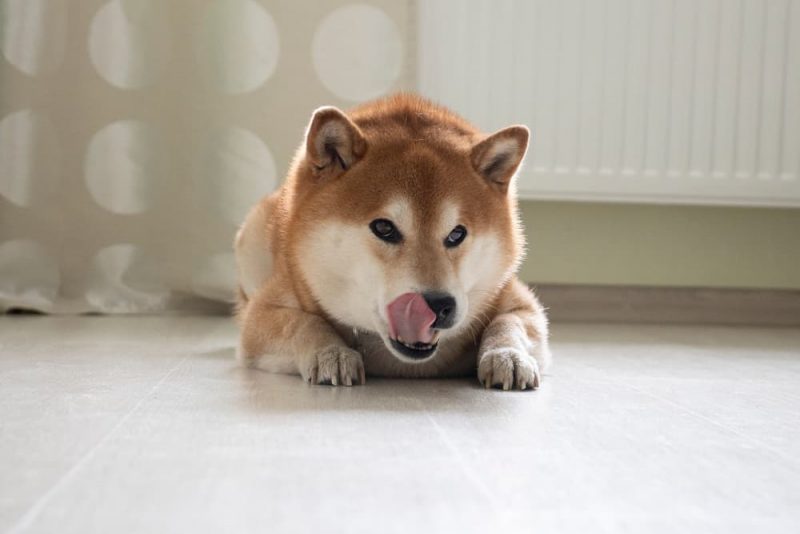
When to Take Your Dog to the Veterinarian for Excessive Licking and Vomiting
While brief vomiting often resolves on its own, the following symptoms warrant veterinary assessment:
- Repeated projectile vomiting
- Vomiting lasting over 24 hours
- Signs of pain, discomfort, or being bloated
- Diarrhea, blood, or mucus in vomit
- Weight loss, appetite changes, or lethargy
- Compulsive floor licking for longer than a day
- Foreign object ingestion potential
Catching underlying illness early maximizes comfortable outcomes for your dog. Make sure to monitor all symptoms vigilantly. Tracking episodes in a journal helps vets diagnose issue like food allergies, inflammatory bowel diseases, parasites, poisoning, viral infections and more that cause persistent nausea. Don’t hesitate to call your veterinarian or seek emergency vet care if you have any concerns with excessive floor licking or vomiting.
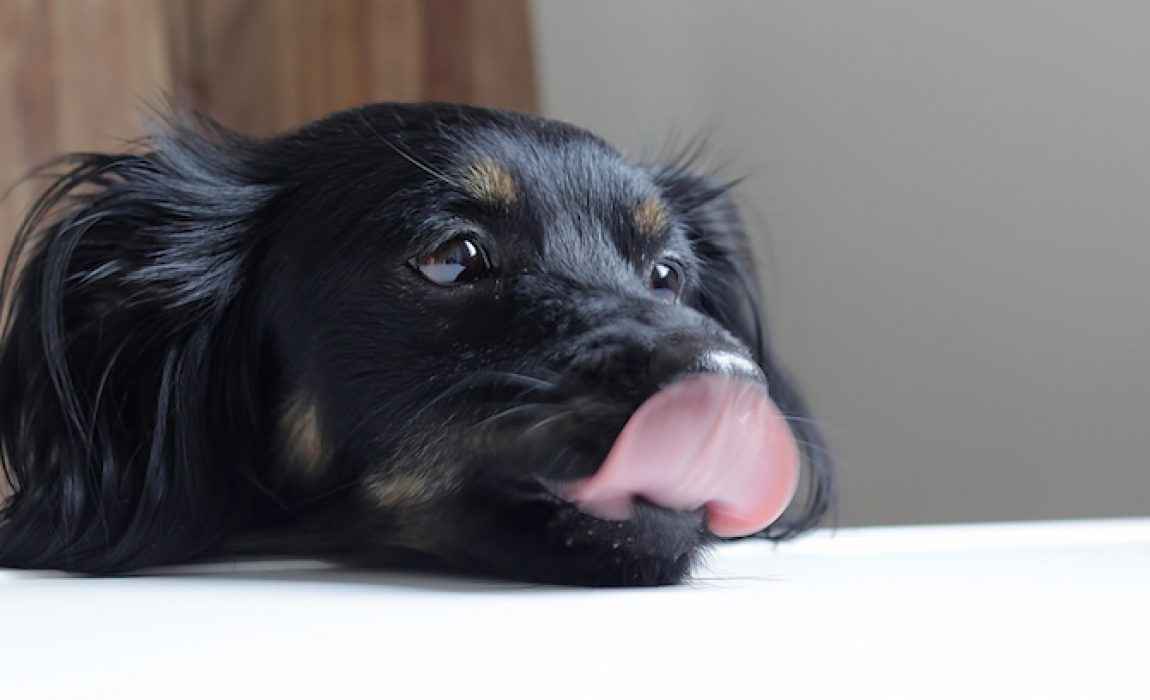
What Tests Help Diagnose Vomiting and Licking Issues?
To determine what’s causing ongoing nausea and floor licking in dogs, vets may utilize:
- Blood, urine or stool analysis
- Endoscopy or imaging tests like X-rays or ultrasound
- Biopsies of stomach/intestines
- Barium swallow studies
- Allergy or toxin screening
- Diet trials
- Ulcer scoped exams
These diagnostics help rule out problems like pancreatitis, fungal infections, metabolic disorders, obstructions, IBD, and other issues that can manifest as persistent licking and vomiting. Identifying root causes then allows proper treatment through medications, supplements, prescription therapeutic diets, and other veterinary care.
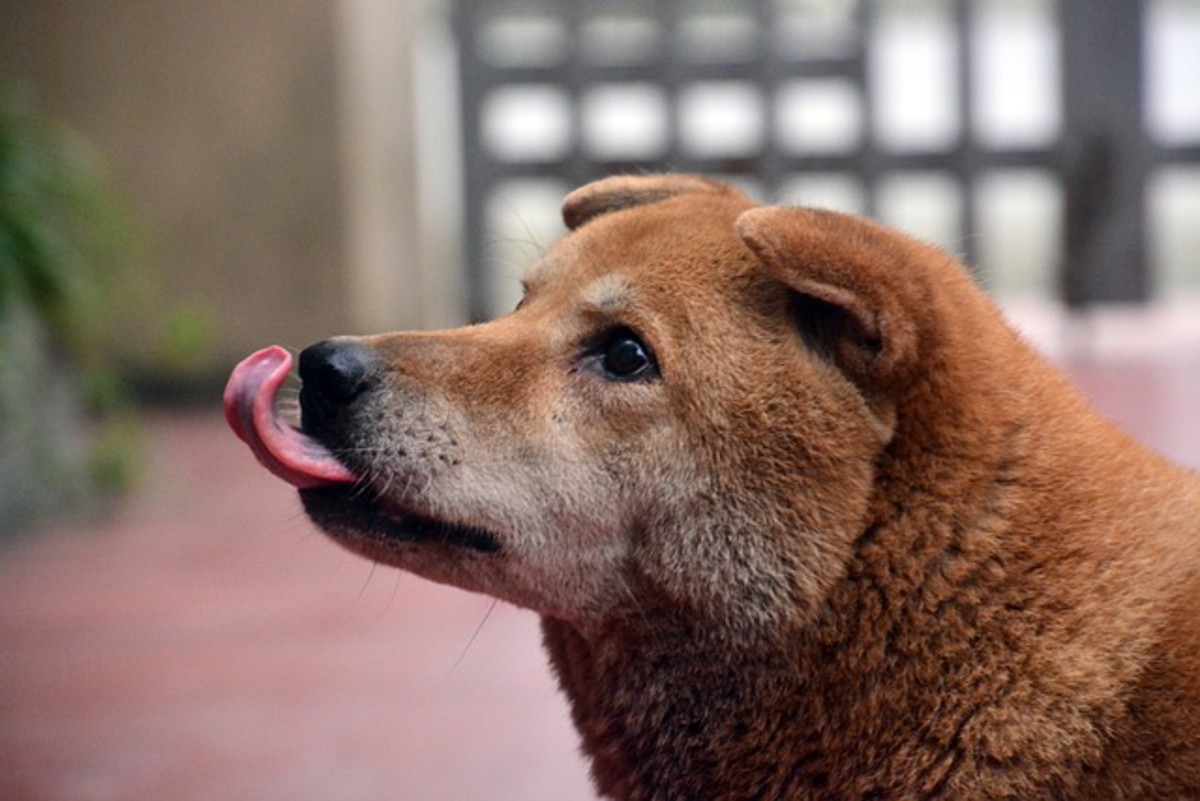
Questions and Answers About Floor Licking and Vomiting
Q: Are home remedies like peppermint oil safe to stop excessive floor licking?
A: Never give your dog any supplements, medications, essential oils, or home treatments without consulting your vet on safety and dosage. Many well-intentioned remedies can seriously harm pets. Proper diagnosis is key.
Q: Could my dog’s vomiting and licking indicate cancer?
A: While excessive licking and vomiting are common with some canine cancers, many other conditions share these symptoms too. But unusual behavioral changes in older dogs warrant FULL veterinary workups to diagnose or rule out cancer through bloodwork, imaging, biopsies, etc. Catching it early makes a big difference.
Q: Why does my dog only lick certain floors or surfaces?
A: Interesting smells, textures, or residues unique to certain rooms likely trigger your dog’s obsessive licking. Steam cleaning carpets and mopping different floors with deterrent scents helps curb the behavior.
Address excessive floor licking promptly before it becomes routine and always rule out medical issues. With vets helping determine root causes, you can stop discomfort and train replacement habits that make dogs and owners happier. Don’t hesitate to seek help!
